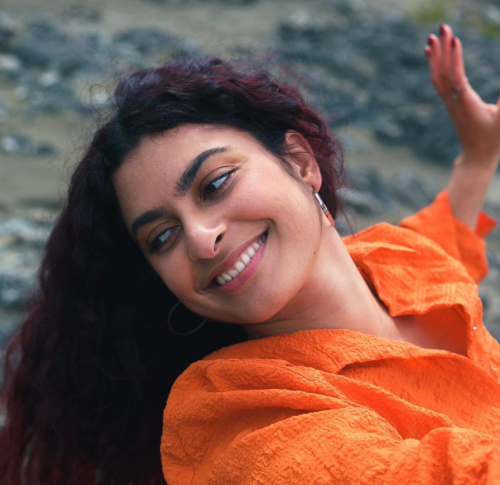An Honest Conversation
BATS Theatre, The Dome, 1 Kent Tce, Wellington
29/04/2022 - 30/04/2022
Production Details
AN HONEST CONVERSATION
SACHA COPLAND AND KIA JEWEL
40 year old choreographer Sacha Copland and a new chatty artist will talk while dancing for 1 hour. They will both try to be honest.
Sacha has choreographed more than 20 full length dance theatre works and now she wants to talk. Sacha also wants to dance. Sacha will try to be honest while she dances and talks.
The mystery guest will be an artist who wants to talk and dance. They will both try to be honest while they dance and talk. Each conversation will only ever happen once.
Sacha and the mystery artists can’t make any promises but they will try to dance, talk and be honest. Sacha and the mystery artists are quite chatty for dancers so that’s a good start. They will try to be both chatty and honest.
SACHA COPLAND AND KIA JEWEL
of Java Dance Theatre
Spoken word , Physical , Improv , Experimental dance , Dance , Contemporary dance ,
60 mins
Free ranging frankness.
Review by Lyne Pringle 02nd May 2022
Sacha Copland and Kia Jewell are brave. They lay out their inner thoughts, like canapés, on a tray: intelligent, skilled, vivacious, warts-and-all performers, in a totally improvised hour of talking and dancing. The title of the work is, An Honest Conversation and this is the premise that they aspire to fulfill. This improvised format must embrace failure. In order to do this performers must stop trying to succeed – this is challenging.
They meander through many topics as they hoist, support, leap, shimmy and cavort. The words roll out and their coiled, pent up bodies, move incessantly in a helter skelter display.
Yes the impulses are there and yes they follow them, especially with their text, but largely the improvised choreography and movement is displayed rather than felt. That said there are some startling choreographic moments and the level of trust between them is admirable. It is pleasing to see two strong women owning the space and the skins they inhabit.
Some topics are enticingly edgy. ‘I come from the racist island, Te Wai Pounamu – using Māori words if you are a Pākeha often feels awkward’ Copland says. The concurrence of the mostly Pākeha audience is palpable.
Jewell defines herself as ‘ethnically ambiguous’ as she raps delightfully on her mixed heritage.
They both discuss the advantages of having a New Zealand passport and the slippery nature of exoticism. Not having children at forty is discussed pragmatically. Copland says there is grief there, but we don’t see it. Do we need to?
Power dynamics are chewed over and there is potency in their eighteen year age gap and Copland’s role as an employer of Jewell in her dance company.
At one point Copland discusses commitment whilst she twirls continuously like a dervish.
Jewell wonders if she is stuck and asks her if she needs help. Copland says no but reflects that things are easy to get into and hard to get out of and how she often refuses help when she should accept it. She stops eventually, looking slightly nauseous, disoriented and vulnerable rather than her usual strong, wired, on top of it, chirpy persona. I want more of her in this state.
With Copland sitting on her back, Jewell says ‘ I feel like we have been in this position a lot’. They have.
They discuss sex – the ins and outs so to speak. Their candidness is charming and draws laughter and nods of agreement from the audience.
At another point the concept of ‘lightness’ is contemplated and then they get light, they slow down and this draws me in more.
Later Copland delves into the textures of bodies, the landscapes of another being and what this evokes in terms of relationship – it is fascinating. The movement here has nuance and layers.
In the show they say a few times – ‘should I say this?’ as they check in with their censor. Inevitable they say ‘ok I’m just going to say this’. This takes guts and the conversation definitely is honest and risky as a result. Bravo for embracing this, as one of the prompts for their improvisation – it yields fruitful results.
I went to the show with my friend Nancy, with the intention of reviewing the performance as a conversation. Afterwards, over kai on Courtney, armed with chopsticks, we teeter on the edge of an argument.
Should I say this or filter it through careful diplomatic and possibly vague language that could be interpreted multiple ways? Ok I’m just going to say it:
‘I acknowledge the free ranging frankness of the ‘conversation’ but the movement vocabulary does not have the same freedom, from my perspective.’
Nancy conversely says: ‘the movement is fantastic and right on point with the dialogue with many profound intersections in the randomness of movement and text.’
We agree to differ in our interpretation.
The show was fun, the audience loved it, the terrain of the conversation and the honesty exhibited was compelling.
A image of Copland twirling and twirling and talking resonates with me. I could have watched her do this all night.
They finish, each eating an ice-cream and reading a poem I Talk to My Body by Anna Swir . . .
Here is part of it:
‘My body, you are an animal
for whom ambition is right.
Splendid possibilities
are open to us.’
It is a good way to end this totally unique, one-off performance.
Copyright © in the review belongs to the reviewer





Comments